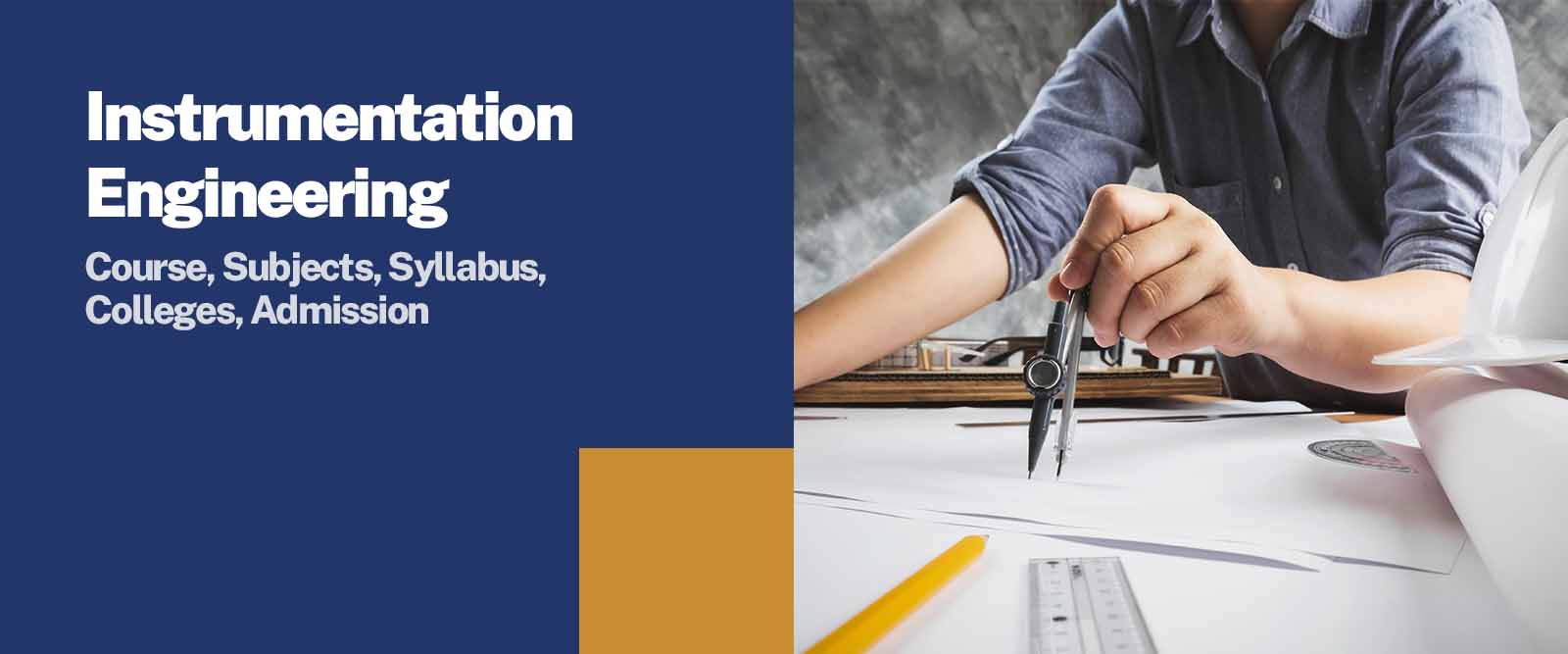5800 students unlocked their dream jobs with UG/PG programs in top colleges. Apply Now!
Instrumentation Engineering is a rapidly growing field that offers a wealth of opportunities for students seeking careers in technology, design, and engineering. The scope of Instrumentation Engineering in India is vast and diverse, covering various applications in diverse industries such as petrochemical, chemical, oil and gas, nuclear power, aerospace, and many others.
Instrumentation Engineers play a critical role in ensuring that these industries operate smoothly, safely, and efficiently. They are responsible for designing and developing instruments and control systems that accurately measure and control physical processes, which are critical to the successful operation of these industries.
Let’s first define instrumentation engineering.
Instrumentation Engineering Meaning
B.Tech Instrumentation Engineering is an interdisciplinary branch of engineering that deals with the design, development, and implementation of measurement and control systems in industrial and technological processes. The course structure is designed to provide students with a solid foundation in core subjects and opportunities to specialise in elective subjects based on their interests and career goals.
The Bachelor of Technology in Instrumentation Engineering blends principles of electrical, mechanical, and electronics engineering to create and maintain high-precision instruments crucial in various applications such as process control, biomedical engineering, the oil and gas industry, aerospace, and many others.
Instrumentation Engineering Courses
The subjects studied in this course cover instrumentation engineering basic concepts, such as the design, development, and implementation of instruments and control systems. These subjects are designed to provide students with a comprehensive education in their field, such as the fundamental principles of electrical, mechanical, and electronic engineering.
|
Core Subjects |
Elective Subjects |
|
|
In addition to the core and elective subjects, students complete laboratory work and projects that provide hands-on experience.
Also Read: Engineering Courses After 12th Standard
Syllabus of Instrumentation Engineering
Instrumentation Engineering and Technology is a 4-year undergraduate program typically divided into 8 semesters. Each semester focuses on different subjects, with a combination of theoretical and practical classes, laboratory work, and projects. The semester-wise breakdown of the syllabus is as below:
|
Semester 1: |
|
|
Semester 2: |
|
|
Semester 3: |
|
|
Semester 4: |
|
|
Semester 5: |
|
|
Semester 6: |
|
|
Semester 7 & 8: |
|
Top Colleges Offering B.Tech Instrumentation Engineering
Instrumentation Engineering is a highly sought-after field, and many colleges in India offer undergraduate programs in this discipline. The following is a list of some of the top colleges for an Instrumentation Engineering degree:
- Indian Institute of Technology (IIT) Bombay
- Indian Institute of Technology (IIT) Delhi
- Indian Institute of Technology (IIT) Kanpur
- Indian Institute of Technology (IIT) Madras
- Indian Institute of Technology (IIT) Kharagpur
- Delhi College of Engineering (DCE)
- Birla Institute of Technology and Science (BITS) Pilani
- Pune Institute of Computer Technology (PICT)
- College of Engineering Pune (COEP)
- Sardar Patel College of Engineering (SPCE) Mumbai
About Instrumentation Engineering Admission Process
Admission to Instrumentation Engineering programs is typically based on merit, with most colleges conducting entrance examinations to select candidates for admission. The admission process for Instrumentation Engineering programs typically involves the following steps:
- Eligibility Criteria: The first step in the admission process is to check the eligibility criteria for Instrumentation Engineering programs. Most colleges require applicants to have passed 10+2 or equivalent examinations with physics, chemistry, and mathematics as the main subjects.
- Entrance Examinations: Most colleges conduct entrance examinations to select candidates for admission to Instrumentation Engineering programs. Some popular entrance exams for Instrumentation Engineering are JEE Main, BITSAT, VITEEE, and SRMJEEE.
- Application Process: Once you have cleared the entrance examination, you must apply to the college of your choice. The application process typically involves filling out an online application form, uploading relevant documents such as a mark sheet and passport-size photo, and paying an application fee.
- Counselling and Seat Allocation: After the entrance examination, successful candidates are called for counselling, where they can select the college and program of their choice. Seats are allocated based on merit and availability.
- Document Verification: After the seat has been allocated, candidates must verify their documents and submit original copies for verification.
- Admission: Once the documents have been verified, the final admission process takes place. Students must pay the admission fee and complete any other formalities as required by the college.
Jobs After Instrumentation Engineering
Here are a few career options after completing a B.Tech degree in Instrumentation Engineering:
- Control Engineer: Designs, develops and maintains control systems for industrial automation.
- Automation Engineer: Develops and implements automated systems and machines to improve efficiency in production and manufacturing.
- Instrumentation Engineer: Designs and develops instruments to measure and control various parameters like pressure, flow, and temperature.
- Process Engineer: Develops and optimises industrial processes to improve efficiency and product quality.
- Robotics Engineer: Designs and develops robotic systems and applications for industrial, medical, and other fields.
- Manufacturing Engineer: Designs and improves manufacturing systems and processes to increase efficiency and reduce costs.
- Electrical Engineer: Designs and develops electrical systems and equipment, such as power generators, motors, and communication systems.
- Maintenance Engineer: Conducts maintenance and repairs on equipment and systems to ensure efficient operation.
- Quality Assurance Engineer: Develops and implements quality control systems to ensure that products meet industry standards and customer requirements.
- Project Manager: Plans, coordinates, and manages projects to ensure they are completed on time, within budget, and meet project objectives.
Final Words
Instrumentation Engineering is a dynamic and challenging field that offers students the opportunity to make a real difference in the world. With its focus on innovation and cutting-edge technology, it is an excellent choice for students seeking a rewarding and challenging career in engineering.
Also Read: Choosing Engineering Stream
Sunstone is a top education service platform in India that provides a multitude of benefits to students across 50+ colleges/universities in over 35 cities. By signing up with Sunstone, students receive comprehensive support from B.Tech admission to placement. This includes help with admission and fees, internships aligned with the industry, training and certifications, integration into the industry, personal development, guaranteed placement assistance, job interviews, and more.
FAQ - Instrumentation Engineering
Is Instrumentation Engineering a good career?
Yes. Instrumentation engineering can be a good career choice for those interested in engineering, technology, and problem-solving.
What to do after Instrumentation Engineering?
After completing a degree in instrumentation engineering, one can pursue a master's degree, job opportunities in the field, or entrepreneurship.
What is the salary of an Instrument Engineer in India?
The salary of an instrumentation engineer in India may vary depending on the company, location, and experience. However, an entry-level instrumentation engineer can expect a salary of around INR 3 to 6 lakhs per annum, which can increase with experience and skills.
HELP
Take the first step towards your dream job.
ABOUT THE AUTHOR


